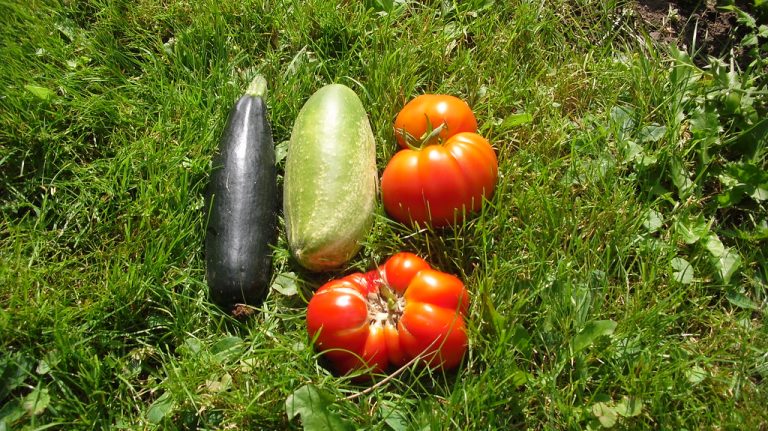Benefits of Using Organic Fertilizers in Your Home Garden

Are you tired of using chemical fertilizers that harm the environment, your family’s health, and the quality of your crops? Switch to organic fertilizers for your home garden today! In this blog post, we will delve into the numerous benefits of using organic fertilizers over synthetic alternatives.
From sustainable soil management to increased nutrient density in produce, we’ll go through all the ways in which organic fertilizer can give you healthier plants and a happier planet. Read on to find out why it’s time to make the switch!
What are Organic Fertilizers?
Organic fertilizers are a type of fertilizer that contains natural ingredients, such as composted manure, bone meal, or seaweed extract. These fertilizers provide nutrients to plants without the use of synthetic chemicals.
Organic fertilizers can be used on all types of plants, including vegetables, fruits, flowers, and trees. They help to improve the soil structure and promote healthy plant growth. Additionally, organic fertilizers often contain beneficial microorganisms that can help to improve plant health and fight off pests and diseases.
There are many benefits to using organic fertilizers in your home garden. First, they are better for the environment than synthetic fertilizers. Synthetic fertilizers can pollute the air and water, whereas organic fertilizers are naturally biodegradable and safe for the environment.
Second, organic fertilizers provide plants with essential nutrients in a more natural way. This means that plants are less likely to experience nutrient deficiencies or other problems associated with over-fertilization. Additionally, since organic fertilizer contains micronutrients and beneficial microorganisms, it can help to improve plant health overall.
Finally, using organic fertilizer in your garden can save you money in the long run. Synthetic fertilizers may be cheaper upfront, but they can actually damage your plants and soil over time. Organic fertilizer is a more sustainable option that will ensure your garden remains healthy for years to come.
Benefits of Organic Fertilizer
Organic fertilizers have many benefits for the environment and home gardens. They improve soil health, increase crop yields, and reduce pollution. They also help conserve water and reduce greenhouse gas emissions.
Organic fertilizers are made from renewable resources, such as plants, animals, and compost. This means they are environmentally friendly and help improve soil health. In addition, organic fertilizers can increase crop yields by up to 50%. This is because they help release nutrients slowly over time, which helps plants absorb them more efficiently.
Furthermore, organic fertilizers help reduce pollution. They do not release harmful chemicals into the environment like synthetic (inorganic) fertilizers do. Additionally, organic fertilizer use can help conserve water. This is because they improve soil health, which leads to better water retention. Finally, organic fertilizer usage can also reduce greenhouse gas emissions by up to 50%. This is because they decay quickly and do not release potent greenhouse gases like carbon dioxide and methane into the atmosphere.
Types of Organic Fertilizers
Organic fertilizers come in many different forms. Some common types include manure, compost, and green manure.
Manure is a great source of nutrients for your plants. It can be applied fresh or aged, and can be derived from a variety of animals including cows, horses, chickens, and rabbits.
Compost is another excellent organic fertilizer. It is made by decomposing organic matter such as leaves, grass clippings, and kitchen scraps. Compost adds vital nutrients to the soil and helps improve its structure.
Green manure is a type of cover crop that is grown specifically to be turned into compost. Commonly used green manures include alfalfa, buckwheat, and oats. Green manure can be incorporated into the soil before planting or used as mulch around existing plants.
Use Organic Fertilizers
Organic fertilizers are an important tool for any home gardener. They provide essential nutrients to plants and help improve soil health. While there are many different types of organic fertilizers available, they all have one thing in common: they must be used properly to be effective.
Here are some tips for using organic fertilizers in your home garden:
Apply organic fertilizer before planting. This will give the plants a boost of nutrients that they can use to get started.
-Side dress plants with organic fertilizer during the growing season. This will give them a consistent supply of nutrients throughout the season.
-Use organic fertilizer when transplanting plants. This will help them adjust to their new location and get a good start in their new home.
-Mix organic fertilizer into the soil before planting seeds. This will help ensure that the seeds have all the nutrients they need to germinate and grow.
Potential Issues with Organic Fertilizer Use and How to Avoid Them
Organic fertilizer can be a great way to improve the health of your home garden. However, there are potential issues that you should be aware of when using organic fertilizer. Here are some tips to avoid these issues:
- Use the right amount of organic fertilizer. Too much organic fertilizer can actually harm your plants. Be sure to follow the manufacturer’s instructions on how much to use.
- Apply organic fertilizer evenly. Avoid putting too much fertilizer in one spot as this can burn your plants. Instead, apply it evenly over the entire garden bed.
- Water regularly after applying organic fertilizer. This will help wash away any excess fertilizer that could harm your plants.
By following these tips, you can avoid potential problems with using organic fertilizer in your home garden.
Comparing Natural or Synthetic Fertilizers
The debate over which type of fertilizer is best for your home garden is ongoing. Some gardeners prefer to use natural, organic fertilizers while others opt for synthetic options. So, what’s the difference between these two types of fertilizer, and which one is right for your garden?
Natural, organic fertilizers are made from plant or animal matter. This can include things like compost, manure, and seaweed. Synthetic fertilizers, on the other hand, are made from chemicals. They often contain nitrogen, phosphorus, and potassium – otherwise known as NPK.
So, which type of fertilizer is best? The answer may depend on your specific gardening needs. Here are a few things to consider when making your decision:
Cost: Natural, organic fertilizers are often more expensive than synthetic options. This is because they’re usually not mass-produced in the same way that synthetics are.
Effectiveness: Both natural and synthetic fertilizers can be effective at promoting plant growth. However, some gardeners believe that natural fertilizers work more slowly and steadily than synthetics, which can provide a quick boost but might not be as sustainable in the long run.
Environmental impact: If you’re concerned about the impact of your gardening on the environment, natural fertilizers may be a better option for you. This is because they don’t usually contain harmful chemicals that could potentially leach into soil and water sources.
Conclusion
Organic fertilizers are an excellent option for making your garden thrive. They provide all the necessary nutrients that plants need in a way that won’t harm the environment or compromise soil health.
With so many options available, you’ll be sure to find something to suit your needs and budget. Whether you choose composting, vermicomposting, manure, seaweed extract or any of the other organic fertilizer alternatives we have mentioned here today –you can rest assured knowing that you will not only be saving money but also protecting our planet at the same time!
James is a passionate writer and gardener with years of experience in home gardening. He is the author of several articles and blog posts on HomeGardenBlog.com, a platform where he shares his expertise and love for plants and gardening with the world.






